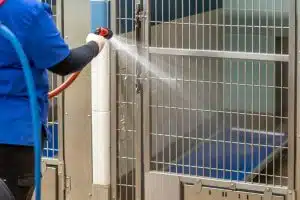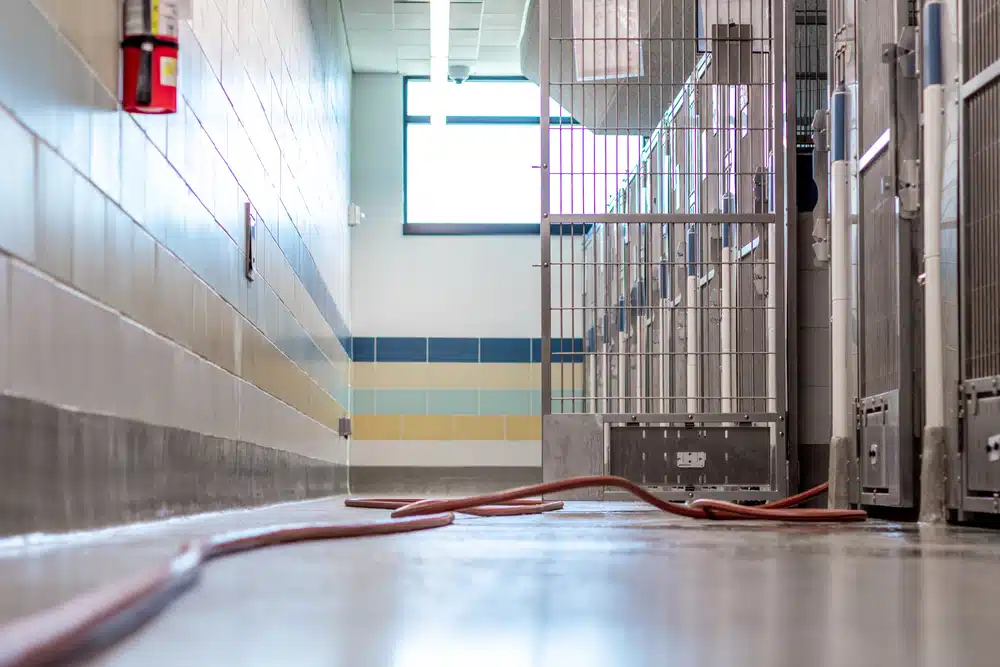 Anyone who owns a boarding kennel in the United Kingdom must be aware of the various legal issues that can arise. First and foremost, it is important to have a license from the local council in order to operate a boarding kennel. Without this license, owners can be fined or even imprisoned. In addition, boarding kennels must comply with a number of other regulations, including those relating to fire safety, animal welfare, and food hygiene. failure to comply with these regulations can result in heavy fines.
Anyone who owns a boarding kennel in the United Kingdom must be aware of the various legal issues that can arise. First and foremost, it is important to have a license from the local council in order to operate a boarding kennel. Without this license, owners can be fined or even imprisoned. In addition, boarding kennels must comply with a number of other regulations, including those relating to fire safety, animal welfare, and food hygiene. failure to comply with these regulations can result in heavy fines.
It is important to have adequate insurance in place in case any accidents or injuries occur while animals are in your care. Without insurance, owners could be liable for thousands of pounds in damages. By being aware of the legal requirements, boarding kennel owners can help to ensure that their business runs smoothly and efficiently
Besides the Animal Boarding Establishments Act, which requires all boarding kennels to be licensed by their local authority (and to comply with their licensing conditions), you will likely need to be aware of several other pieces of legislation that may be of particular interest to your business. Some of these include:
- Animal Welfare Act. The purpose of this Act is to promote animal welfare and prevent cruelty to animals. A person who causes an animal unnecessary suffering (for example, by neglecting it) commits an offence. The Department for Environment, Food and Rural Affairs (DEFRA) has published welfare codes of practice to assist those who keep and own cats and dogs (including those who work in boarding establishments and run them).
- Control of Substances Hazardous to Health (COSHH) Regulations. Cleaning and disinfecting chemicals, for example, are regulated by these regulations. Additionally, requirements are included for controlling risks posed by micro-organisms that cause zoonoses (diseases that can affect humans as well as animals).
- Waste regulations. A kennel or cattery’s dog or cat faeces are controlled industrial wastes under waste regulations and must be disposed of according to specific requirements. This type of waste is often stored in septic tanks or cesspits in kennels and catteries. An authorised site collects and disposes of the stored waste after it has been stored. For further information about waste disposal arrangements, contact the local environmental health department if necessary.
- Dangerous Dogs Act. Dog breeds are restricted under this Act. The dog must be accompanied by a third-party insurance certificate and an official Certificate of Exemption to be admitted to the kennels. A person who is in control of a dog that is ‘dangerously out of control’ is also committing a criminal offence, not just in public but in private locations too, such as a home or garden.
- Environmental Protection Act. Businesses must dispose of waste properly by using registered carriers or appropriately licensed disposal facilities under this Act (and the regulations mentioned above). Boarding kennels may also need to consider noise and smell nuisances in accordance with the Act.
- Welfare of Animals (Transport) Order. A license for an animal transporter is required if you transport animals as part of your business. A vehicle must be inspected and approved for long journeys (over eight hours). A certificate of competence is required for drivers or attendants transporting animals more than 65 kilometres.
What licences does a boarding kennel need?
Boarding kennels for cats or dogs in England must apply to their local authority for an animal activity licence under the Animal Welfare (licensing of Activities Involving Animals) (England) Regulations 2018, which came into force on 1 October 2018. Local authorities inspect premises to determine whether the applicant is a ‘fit and proper person’ before issuing a license.
There is a fee associated with a license, which can last one, two, or three years. There will be the following general license conditions:
- The requirement to display the licence
- The records to be maintained
- Number and type of animals that can be boarded
- Staffing requirements
- The suitability of the environment
- Dietary requirements
- Interaction with the animals
- Protection from pain, suffering and disease
- Emergency procedures
If you violate the terms of the licence, you may be fined and/or imprisoned.
As a result of the transitional arrangements, any unexpired Animal Boarding Establishment Act 1963 licence continues to be valid.
Animal activities licences are also required for the commercial boarding and day care of dogs in England.
Scotland, Wales, and Northern Ireland do not have devolved responsibilities for animal welfare. The legislation is still under review by each administration, and changes are expected in the near future.
All proprietors of boarding kennels are required to obtain a licence from the local authority under the Animal Boarding Establishments Act (in Scotland and Wales). Local authority officials will visit the business to determine whether it meets the required standards. Also, many authorities require a license applicant to have a certain level of qualification. A copy of the licence itself must be displayed at the premises, as well as the number of dogs and cats allowed on the premises. Licensing fees vary depending on your local authority. Renewal of licenses is required every year.
Providing comprehensive guidance on starting a pet boarding establishment, including license requirements and design ideas, is the specialty of Kennel & Cattery Design. Visit Kennel Design’s website to learn more about their Starting a kennel kit.
The International Cat Care Association publishes information and advice about the construction and operation of catteries. Visit their website to learn more.
The majority of local governments require pet home boarding providers to be licensed as well as to meet licensing requirements. In Scotland, Wales, and Northern Ireland, licensing requirements and standards are set and enforced differently. Licenses are not required for pet sitters (people who stay at the pet owner’s home to look after their animals).
There is no legal requirement for pet sitters or home boarding facilities to conduct criminal background checks to reassure their customers.
A government website offers more information about licensing animal boarding establishments. You can contact your local authority’s environmental health department for information about local licensing requirements and conditions.
Planning permission will almost certainly be required if you are building or renovating your boarding house.
Health & safety, fire
Pet boarding establishments require special fire safety measures because of the large amounts of bedding materials that are often flammable, as well as the presence of heaters in most of them.
Complying with workplace health and safety and fire safety legislation is also important.
Employment legislation
Possibly on Saturday mornings, you will need help with some tasks around the kennels. There are special rules concerning child employment if you do employ someone under 16 in this type of work. Teenagers and young people are popular candidates for this kind of work.
Employment legislation must be followed by anyone who employs staff. Legislation covers the following areas:
- Recruitment and employment contracts
- Pay and pensions
- Working time: hours, leave, flexible working
- Employment policies
- Sickness and sick pay
- Maternity, paternity and adoption
- Discrimination
- Managing home workers, remote workers, lone workers
- Discipline and grievance
- Dismissals and redundancies
- Employment tribunals
Insurance for a boarding kennel
It is necessary to have insurance cover when starting a business. Pet boarding establishments are generally required to have adequate and appropriate insurance coverage, and insurance certificates should be displayed prominently. Explain how you will operate your business to an insurer. A cost estimate will be provided once they have recommended what cover you should have.
When it comes to business expenses, shopping around can often save you money. Remember that you are not required to take out all of your business insurance policies with the same insurer, even though many insurers offer a complete package of business insurances.
Your business may need the following types of insurance:
- Employer’s liability
- Public liability
- Premises and premises contents
- Business interruption
- Your animals are protected by third party legal protection coverage if they bite someone or injure another animal – perhaps while walking
- Professional negligence, including cover for the loss of an animal
- Animal welfare prosecution cover
- Liability for noise, smoke or effluent pollution
- Other environmental liability
- Motor insurance (for your own animal collection vehicles, if appropriate)
- Insurance to cover veterinary fees
A pet industry insurance policy is available through the Pet Industry Federation (PIF), which consists of the UK Kennel and Cattery Association. PIF’s website has more information.
Lee Jones is a seasoned Business Finance Specialist with over two decades of invaluable experience in the financial sector. With a keen eye for market trends and a passion for helping businesses thrive, Lee has become a trusted advisor to countless organizations seeking to navigate the complexities of finance.


